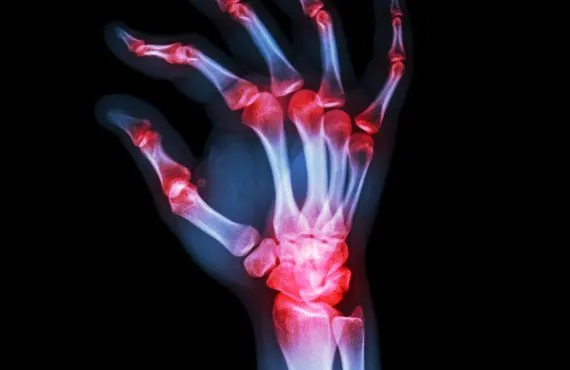Living with constant pain and discomfort in your hands and wrists can be incredibly frustrating and debilitating.
It can turn simple, everyday activities into significant challenges, making it difficult to work, cook, or even enjoy time with your loved ones.
If you’re experiencing these symptoms, you might be wondering whether you have rheumatoid arthritis (RA) or carpal tunnel syndrome (CTS).
You’re not alone in this struggle, and you’ve come to the right place for answers.
At Focus Physical Therapy, we’re here to help you understand these conditions and guide you toward the right treatment to find the relief you deserve.
Understanding Rheumatoid Arthritis
Rheumatoid arthritis is a chronic inflammatory disorder that primarily affects the joints.
It occurs when your immune system mistakenly attacks your body’s tissues, causing painful swelling that can eventually result in joint deformity and bone erosion.
RA typically affects the joints in your hands, wrists, and knees, and the inflammation associated with RA can also affect other parts of the body.
Symptoms of Rheumatoid Arthritis:
- Persistent joint pain and tenderness
- Swelling in the joints
- Stiffness, especially in the morning or after periods of inactivity
- Fatigue and general feeling of being unwell
- Fever and weight loss in severe cases
Who is Affected by Rheumatoid Arthritis?
RA can affect anyone, but it most commonly begins between the ages of 40 and 60.
Women are more likely to develop RA than men.
The exact cause of RA is unknown, but a combination of genetic and environmental factors is believed to play a role.
Do I Have Rheumatoid Arthritis or Carpal Tunnel Syndrome? 5 Key Differences
Pain Location
Rheumatoid arthritis (RA) typically causes pain that affects multiple joints on both sides of the body, with a particular emphasis on the small joints in the hands, wrists, and feet.
The pain is usually symmetrical, meaning it occurs in the same joints on both sides of the body.
For example, if your right wrist is affected, your left wrist likely will be too.
In contrast, carpal tunnel syndrome (CTS) pain is usually localized to the wrist and hand, specifically targeting the thumb, index, and middle fingers.
This pain can also radiate up the arm, but it remains concentrated in the areas served by the median nerve, which passes through the carpal tunnel in the wrist.
Pain Type
The pain associated with rheumatoid arthritis is often described as a deep, aching sensation that comes with significant swelling and stiffness in the affected joints.
This type of pain is due to the inflammatory nature of RA, which causes the joints to swell and feel warm and tender.
On the other hand, carpal tunnel syndrome is characterized by a different type of discomfort, often described as tingling, numbness, or a burning sensation in the thumb and fingers.
This discomfort can also lead to weakness in the hand, making it difficult to grasp objects or perform fine motor tasks.
The nature of CTS pain is due to the compression of the median nerve, which affects nerve function and sensation in the hand and fingers.
Symptom Timing
Rheumatoid arthritis symptoms are typically worse in the morning and after periods of inactivity.
The stiffness and pain can last for an hour or more after waking up, which is a hallmark sign of inflammatory arthritis.
This prolonged morning stiffness is due to the inflammation and buildup of fluid in the joints that occurs during periods of rest.
In contrast, carpal tunnel syndrome symptoms often worsen at night and can wake you from sleep.
Activities that involve repetitive wrist motions, such as typing or driving, can also aggravate CTS symptoms.
This nighttime worsening of symptoms is often due to the position of the wrist during sleep, which can increase pressure on the median nerve.
Causes
Rheumatoid arthritis is an autoimmune disease with no known exact cause.
It occurs when the immune system mistakenly attacks the body’s own tissues, particularly the synovium, which lines the joints.
Genetic factors and environmental triggers, such as smoking or exposure to certain bacteria or viruses, are thought to contribute to the development of RA.
Conversely, carpal tunnel syndrome is caused by pressure on the median nerve as it travels through the carpal tunnel in the wrist.
This pressure can result from repetitive hand movements, wrist anatomy, or other health conditions like diabetes, thyroid disorders, or rheumatoid arthritis itself.
The anatomical structure of the wrist and the presence of conditions that cause swelling or inflammation can contribute to the development of CTS.
Treatment Approaches
Treatment for rheumatoid arthritis often includes medications to reduce inflammation and suppress the immune system, such as nonsteroidal anti-inflammatory drugs (NSAIDs), corticosteroids, and disease-modifying antirheumatic drugs (DMARDs).
Physical therapy is also crucial for maintaining joint function and preventing further damage. Lifestyle modifications, including a balanced diet and regular exercise, are essential for managing symptoms and improving overall health. In contrast, carpal tunnel syndrome treatment may involve wrist splinting, especially at night, to keep the wrist in a neutral position and reduce pressure on the median nerve.
Medications to reduce inflammation, such as NSAIDs or corticosteroid injections, can also be helpful.
Physical therapy can improve wrist strength and flexibility, and in severe cases, surgery may be necessary to relieve pressure on the median nerve by cutting the ligament that forms the roof of the carpal tunnel.
Understanding these differences can help you identify whether you might be dealing with rheumatoid arthritis or carpal tunnel syndrome, allowing you to seek the appropriate treatment.
At Focus Physical Therapy, we specialize in providing personalized care to manage both conditions effectively.
If you’re experiencing symptoms of RA or CTS, don’t hesitate to reach out for a consultation and take the first step towards finding relief.
Customized Relief for Rheumatoid Arthritis at Focus Physical Therapy
At Focus Physical Therapy, we believe in the power of custom-tailored treatments over generic approaches.
Looking for a care strategy specifically designed for your rheumatoid arthritis pain challenges?
Contact us at 502 509 3136 to start your path towards individualized relief.

